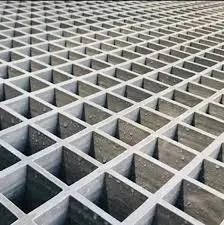
-
 Afrikaans
Afrikaans -
 Albanian
Albanian -
 Amharic
Amharic -
 Arabic
Arabic -
 Armenian
Armenian -
 Azerbaijani
Azerbaijani -
 Basque
Basque -
 Belarusian
Belarusian -
 Bengali
Bengali -
 Bosnian
Bosnian -
 Bulgarian
Bulgarian -
 Catalan
Catalan -
 Cebuano
Cebuano -
 China
China -
 China (Taiwan)
China (Taiwan) -
 Corsican
Corsican -
 Croatian
Croatian -
 Czech
Czech -
 Danish
Danish -
 Dutch
Dutch -
 English
English -
 Esperanto
Esperanto -
 Estonian
Estonian -
 Finnish
Finnish -
 French
French -
 Frisian
Frisian -
 Galician
Galician -
 Georgian
Georgian -
 German
German -
 Greek
Greek -
 Gujarati
Gujarati -
 Haitian Creole
Haitian Creole -
 hausa
hausa -
 hawaiian
hawaiian -
 Hebrew
Hebrew -
 Hindi
Hindi -
 Miao
Miao -
 Hungarian
Hungarian -
 Icelandic
Icelandic -
 igbo
igbo -
 Indonesian
Indonesian -
 irish
irish -
 Italian
Italian -
 Japanese
Japanese -
 Javanese
Javanese -
 Kannada
Kannada -
 kazakh
kazakh -
 Khmer
Khmer -
 Rwandese
Rwandese -
 Korean
Korean -
 Kurdish
Kurdish -
 Kyrgyz
Kyrgyz -
 Lao
Lao -
 Latin
Latin -
 Latvian
Latvian -
 Lithuanian
Lithuanian -
 Luxembourgish
Luxembourgish -
 Macedonian
Macedonian -
 Malgashi
Malgashi -
 Malay
Malay -
 Malayalam
Malayalam -
 Maltese
Maltese -
 Maori
Maori -
 Marathi
Marathi -
 Mongolian
Mongolian -
 Myanmar
Myanmar -
 Nepali
Nepali -
 Norwegian
Norwegian -
 Norwegian
Norwegian -
 Occitan
Occitan -
 Pashto
Pashto -
 Persian
Persian -
 Polish
Polish -
 Portuguese
Portuguese -
 Punjabi
Punjabi -
 Romanian
Romanian -
 Russian
Russian -
 Samoan
Samoan -
 Scottish Gaelic
Scottish Gaelic -
 Serbian
Serbian -
 Sesotho
Sesotho -
 Shona
Shona -
 Sindhi
Sindhi -
 Sinhala
Sinhala -
 Slovak
Slovak -
 Slovenian
Slovenian -
 Somali
Somali -
 Spanish
Spanish -
 Sundanese
Sundanese -
 Swahili
Swahili -
 Swedish
Swedish -
 Tagalog
Tagalog -
 Tajik
Tajik -
 Tamil
Tamil -
 Tatar
Tatar -
 Telugu
Telugu -
 Thai
Thai -
 Turkish
Turkish -
 Turkmen
Turkmen -
 Ukrainian
Ukrainian -
 Urdu
Urdu -
 Uighur
Uighur -
 Uzbek
Uzbek -
 Vietnamese
Vietnamese -
 Welsh
Welsh -
 Bantu
Bantu -
 Yiddish
Yiddish -
 Yoruba
Yoruba -
 Zulu
Zulu
Fiberglass Rectangular Tanks for Efficient Water Storage and Industrial Applications
Understanding Fiberglass Rectangular Tanks Advantages and Applications
Fiberglass rectangular tanks have gained popularity across various industries due to their durability, lightweight properties, and corrosion resistance. These tanks offer a versatile solution for storing liquids and can be found in agricultural, industrial, and municipal applications. Understanding the benefits and functionalities of fiberglass rectangular tanks can help businesses and individuals make informed decisions when considering their storage options.
What are Fiberglass Rectangular Tanks?
Fiberglass rectangular tanks, often constructed using fiberglass-reinforced plastic (FRP), are designed for efficient liquid storage. Their rectangular shape provides significant advantages in space optimization, allowing for easy installation in tight areas. Unlike traditional storage solutions made of metal or wood, fiberglass tanks are not prone to rust or rot, making them an appealing choice for long-term use.
Advantages of Fiberglass Rectangular Tanks
1. Durability Fiberglass is known for its strength and resistance to external environmental factors. These tanks can withstand harsh weather conditions and chemical exposure, ideal for varied applications ranging from chemical processing to water treatment.
2. Lightweight One of the standout features of fiberglass is its lightweight nature. This makes installation easier and reduces transportation costs. Fiberglass tanks can be maneuvered into place with less heavy machinery compared to metal tanks, simplifying the setup process.
3. Corrosion Resistance Fiberglass does not corrode like metals, which can be severely affected by various chemicals and atmospheric conditions. This quality significantly extends the lifespan of the tanks and minimizes maintenance costs.
4. Cost-Effective Although the initial investment may be higher than other materials, the longevity and low maintenance requirements of fiberglass tanks often lead to overall cost savings in the long run. They are less likely to require replacements or repairs, making them a prudent financial choice.
fiberglass rectangular tank

5. Versatility Fiberglass rectangular tanks can be manufactured in various sizes and capacities, accommodating different needs. From small-scale agricultural operations to large industrial facilities, these tanks can be customized for a wide range of applications.
Applications of Fiberglass Rectangular Tanks
Fiberglass rectangular tanks are used in numerous industries
- Agriculture In farming, these tanks store water for irrigation, chemical solutions, and even nutrient-rich liquids for hydroponics. Their ability to handle various liquids safely makes them a favorite among farmers.
- Wastewater Treatment Municipalities often utilize fiberglass tanks in their wastewater treatment facilities. Their resistance to corrosion from chemical-laden water makes them ideal for this application.
- Industrial Processes Industries involved in chemical processing, oil and gas, and food production utilize fiberglass tanks for storage and processing, benefiting from their strength and chemical resistance.
- Aquaculture In fish farming and aquaculture, these tanks provide a safe environment for aquatic life. Their customization options allow for controlled environments suited for specific species.
Conclusion
Fiberglass rectangular tanks present a compelling solution for liquid storage across various sectors. Their blend of durability, lightweight design, corrosion resistance, cost-effectiveness, and versatility make them an excellent investment for those seeking reliable and efficient storage solutions. Understanding these tanks’ advantages and applications empowers individuals and businesses to select the best options for their needs, ensuring smooth operations and long-term success. As industries continue to evolve, the demand for innovative and resilient storage solutions like fiberglass tanks will likely increase, underscoring their essential role in modern applications.









